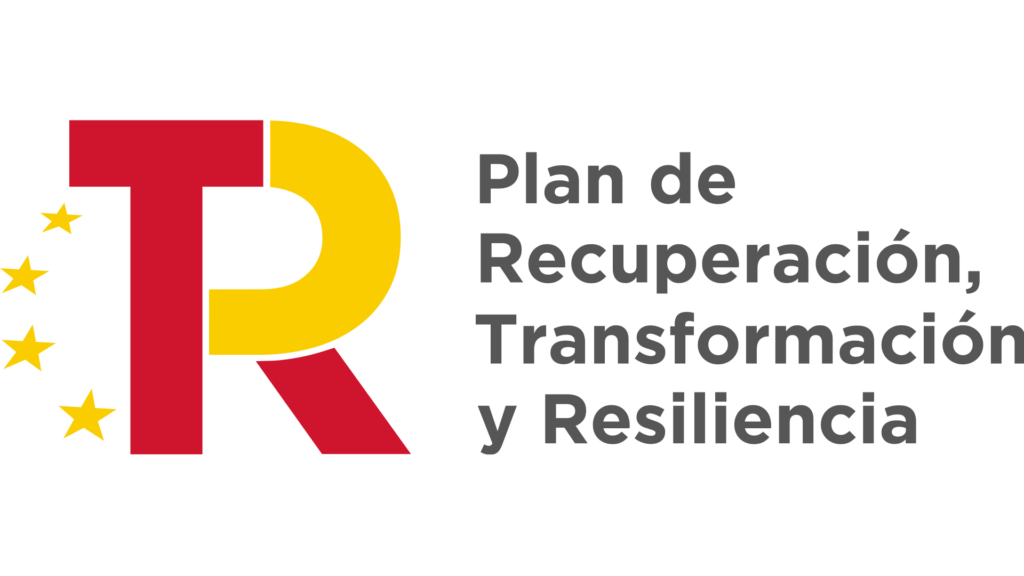Herbicides, good or bad for our crops?
Hello!What do you think about herbicides? Do you think they are good for our crops? Or do you think they end up affecting them and the environment around them in some way?
These are difficult questions to answer and very delicate, since we are talking about a product that, if used incorrectly, can cause a lot of damage, both to plants and crops, as well as to the environment and people who come into contact with it.

Recently, the European Parliament supported the renewal for seven more years of the use of Glyphosate, this herbicide is currently the most used worldwide.
For this reason, this week we have a luxury guest who is going to answer five questions related to herbicides and more specifically, about Glyphosate, his name is Jesús Lasheras Ocaña and he is currently an R+D+F Technician at the IFAPA Goat Center.
Jesús is an Agricultural Engineer and has a degree in Oenology from the University of Córdoba. In addition, he has published many publications related to vineyards and wine that show his extensive professional career. He has also been a tasting judge in the XX Edition of the Mezquita Awards and in the I and II Tasting Competition of the Altiplano de Granada. As if all this were not enough, he has been an honorary collaborator at the University of Córdoba, actively participating in teaching the subject Viticulture I and II, in the Oenology Degree for three years.
From Bodegas La Aurora we want to thank you for accepting our invitation and we hope to be able to count on you on another occasion. THANK YOU SO MUCH!
We leave you with the 5 questions that we have selected and that Jesus has so kindly answered for us:
1º What is your opinion of herbicides at a general level?
Herbicides were designed as effective weed control tools and that is how I view them. The problem is that they have become a double-edged sword, in part, due to the misuse that they are being given.
It is not surprising to hear farmers say that they use doses higher than the recommended commercial dose, or even use the same active ingredient for 10 consecutive years, allowing selection to occur and resistant biotypes of weeds to appear.

2º What do you think about the wide use that glyphosate currently has throughout the world?
Well, just like the use of any other herbicide. That seems fine to me. The question is, why is there so much interest in glyphosate and not another herbicide? It is a self-answered question. It is one of the most effective herbicides on the market and controlled, until a few years ago, quite well, a wide spectrum of weeds.
As I have said before, its misuse has given it a bad reputation, among which its carcinogenic character, not yet proven, and its polluting nature stands out.
In a study carried out on plants by Rojano et al. (2010) sarcosine was found among the metabolites in plants, which is a biomarker of prostate cancer. However, this does not indicate that it is carcinogenic, but rather that it coincides with a biomarker of said disease and not with a precursor of it.
But now I ask other questions: Has anyone stopped to read the safety deadlines and recommended doses? Has anyone even stopped to read the label? Glyphosate degrades, it is not perpetual.
I can say that it is one of the most effective herbicides that I have worked with and in which I have observed that its effectiveness can be increased by taking into account small considerations in the application, such as temperature, light, humidity,…
What few people know is that it is one of the most studied herbicides and whose mechanism of action is one of the best known.
3º Do you know of less polluting and more environmentally tolerant alternatives to glyphosate?
Yes and no. It depends on each case, but any of them carries a consequence.
If we till, we erode the soil. If we use biological control, such as using livestock to eliminate weeds, we can lead to the spread of seeds in animal feces and there is also the risk of browsing by some species of livestock (something that, on a personal level, I have suffered ).
If we use residual herbicides inappropriately or without knowledge, we can contaminate tributaries or groundwater.
And if you don’t do anything, in a short time you will have your entire farm full of weeds that are difficult to control.
Mechanical weeding could be a viable option for the control of vegetal covers, but it entails the need to carry out adequate management of it, clearing it depending on the annual weather, just before the moment in which they can establish competitive relations with the vine.
But you must know that weeding does not eliminate weeds, it only reduces their requirements for water and nutrients for a certain period of time, so frequent weeding may have to be carried out.
This practice entails an expense that local wine farms may not be able to assume in order to maintain their economic viability.
What I do know as environmentally tolerant is good agricultural education and responsible management. And I think that is what should be used rather than simply blaming the commercial houses, whose products have passed strict controls to be marketed.
4º As an expert in viticulture, do you think that the use of glyphosate negatively affects vineyard plants? And in obtaining wine?
Everything results in the same thing. I believe that an irresponsible use of glyphosate in particular, or any other phytosanitary product in general, negatively affects not only the cultivation of vines, grapes and wine as a final product, but also negatively affects any other crop and to the environment in general.
In the specific case of glyphosate in the vineyard, it must be said that this herbicide is absorbed by the leaves and not by the roots, it translocates within the plant and affects by inhibiting the biosynthesis of the aromatic amino acids phenylalanine, tyrosine and tryptophan, essential among the components of the grape.
Therefore, misuse of this herbicide, in such a way that it comes into contact with any green organ of the vine, will negatively affect the composition of the grape and, therefore, the wine made from it.
These problems could occur at the fermentation level, with difficulty starting it or with fermentation stops, or even at the aromatic level, subtracting varietal potential from the wine produced.
In the worst case, it could end up killing the plant.
However, responsible use of glyphosate, at the appropriate dose and time, alternating with other active materials, depending on the time of year and the weeds to be controlled, is a very effective option in the fight against undesirable plants.
5º Do you think the renewal of the use of glyphosate by the European Parliament for 7 more years is correct?
Yes and no. Yes, because they have not withdrawn it completely and have given a margin of time. And no, because having an expiration date will imply the abusive use of another active substance that will cause new resistance and therefore it will be necessary to start over with all the studies of the mechanisms involved.
We hope that our guest was able to resolve any doubts you had about the use of herbicides and more specifically Glyphosate.
If you have anything to add, we invite you to use the comments below or one of our social networks, Facebook and Google+. All the best!
By Rafael Espejo.
Bodegas La Aurora S.C.A.
Avda. de Europa, 7 Montilla Córdoba 14550
Tél: 957 650 362
Tél: 957 654 642
Email: administracion@bodegaslaaurora.com
Information





